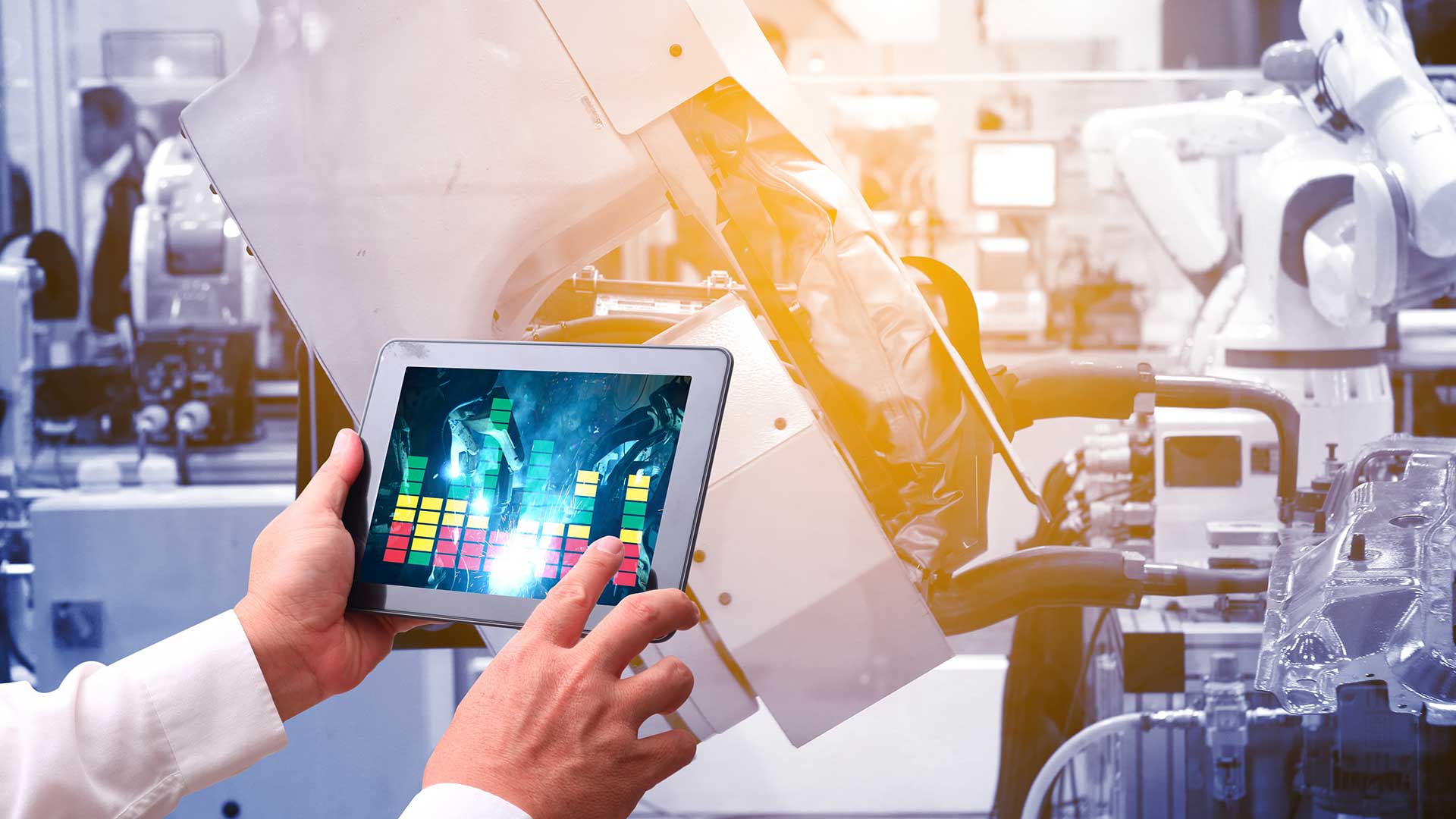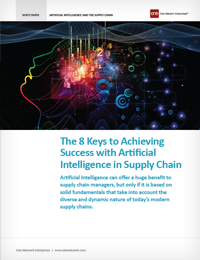This post has already been read 19907 times!
Big changes are in store for manufacturing as artificial intelligence (AI) and automation combine to reshape the manufacturing supply chain and manufacturing itself.
Don’t let the idea of automation in manufacturing bring about the wrong impression. Not every kind of automation is being conceived with the goal of eliminating human effort and removing people from factories. In fact, many of the technologies out there remaking manufacturing today will create brand new disciplines and skill sets, and many require even newer qualifications and classes of specialists.
Big changes are in store for manufacturing thanks to artificial intelligence and automation, that’s clear. Let’s take a look at what they are.
Reducing Uncertainty in Complex Processes
Most of the analysis available right now says many of the jobs that require low-skill, repetitive human effort will be phased out entirely in the coming decades. This change is, of course, a net positive for human industry. It should see an end to many types of preventable errors that result in product recalls, resources being wasted, employees sustaining injuries or working in poor conditions and other great and small nuisances for employee and employer alike.
“Artificial intelligence and automation are transforming manufacturing and the entire end-to-end manufacturing supply chain,” says Nathan Sykes Share on XConsider the many steps involved in moving raw materials from one end of a manufacturing plant to the other, and then all the other steps required to bring the finished product to the end-user. Automation is useful not only to manufacturing itself, but also to the several other job-sustaining industries it relies on, like freight movement, assembly, mining, extraction, resource planning, inspections, retail and more.
Automation in the Manufacturing Supply Chain
Here are a few of the ways automation can play a role in the typical manufacturing supply chain:
Multi-vendor workflows: Many manufacturers rely on multiple partners for raw material sourcing, moving unfinished products, performing outside testing, clearing customs, filing paperwork, exchanging currencies and many more tasks. Automation can step in and make some of the routing decisions without human intervention and even perform some of the due diligence, such as route planning, thereby reducing potential errors and other slowdowns.
Proactive sourcing: A more data-driven approach to managing vendors will also help manufacturing companies better anticipate component shortages that might affect them in the future. This approach could mean an added level of security against outside events that can be predicted in advance, such as weather events, along with more agile decision-making for unforeseen events.
Material and resource distribution: Even within a single manufacturing company, there might be multiple facilities, each depending on a number of basic resources to keep operations turning. Automation powered by machine learning can make it easier to automatically re-order critical supplies for just-in-time manufacturing or place requisitions to neighboring facilities when one facility has a surplus that could keep another facility going through an anticipated shortage.
At any given time, there are multiple touch points in manufacturing, from the placement of orders to the distribution of products in warehouses to the involvement of numerous vendors and shippers, where automation can reduce unnecessary friction and waste.
Related: 8 Keys to Success with Artificial Intelligence in Supply Chains
Performing Proactive Maintenance on Critical Infrastructure
Remote devices, Internet of Things (IoT), and artificially intelligent technologies are slowly transforming how proactive and ongoing maintenance is conducted on all kinds of structures and equipment. In government applications, we see civic engineers piloting drones to inspect public bridges and dams. Applications in industry aren’t necessarily as perilous, but in many cases, they save a lot of effort and tedium when it comes to maintenance.
“IoT combined with artificial intelligence can enable powerful predictive and proactive maintenance strategies that save companies millions,” says Nathan Sykes. Share on XDowntime on a single delivery truck can be disastrous to that day’s (or even that quarter’s) profits. And if a conveyor, air compressor or piece of machining equipment fails during your busy season and you don’t have a plan B, it can spell disaster to your entire business.
Proactive maintenance is another gift from automation. In delivery trucks and similar assets, automation can wirelessly deliver advance warning when wear-items need attention, inspections are coming due or the vehicle otherwise requires intervention — long before it fails outright. And for the machines and tools you rely on for unbroken up time when you’re actually turning out finished products, automated sensors for things like vibration and machine temperature can flag engineers and decision-makers, who can plan to intervene at the optimal time so as not to cause a full shutdown of operations.
Product Consistency and Quality Control
The importance of quality control has been made abundantly clear by the high-stakes product recalls and disease outbreaks that have caught public attention. Ice cream factories require accurate and timely testing for contaminant levels, pH balance and more. Automobile assembly lines rely on incredibly high tolerances for dozens or hundreds of parts to work together safely at any given time.
In the former example, the FDA describes what it believes will be a long-term relationship between automated technology providers and the food and beverage industries. It cites the containment of observed contaminants and pathogens as an especially important application of automated technologies, which might not only detect problems faster than human inspectors but also put safeguards in place and halt production more quickly.
Even if the factory in question isn’t assembling something as complex as a finished automobile, even modestly sized businesses that rely on small runs of machined or 3D-printed parts can enjoy the benefits of automation for quality control and duplicable workflows. Automation is an essential strategy for the business that wants to operate with attention to detail and high quality standards at scale.
Automation Facilitates the Rollout of Efficient Technologies and Higher Standards
Every manufacturing company in the world strives to do more with less. That begins with lean facilities. Automation and artificial intelligence are proving useful in helping traditionally wasteful enterprises like manufacturing monitor their energy use more proactively and make smart changes. Even in the ’90s, steel mills and similar industrial plants were making use of what were then primitive neural networks to recover wasted effort.
Achieving energy savings has only become a more urgent concern in manufacturing and the rest of industry. Data capture, and eventually using that data to inform automation strategies, can help devise new best practices for product design and assembly as well as industry benchmarks for equipment safety and efficiency.
Every part of fine-tuning the production process, from balancing equipment output with energy usage to discovering times when conveyors or compressors can be cycled down or turned off, is something we now have the tools to measure and, in many cases, automate. Even individual production lines can be inspected with this in mind, even if the only change it produces is the decision to replace aging equipment.
At any rate, the goal of bringing neural nets into steel mills was the same as automation today: to help manufacturers and fabricators, analyze equipment, facilities and infrastructure, to discover where they weren’t working as smart as they could be. Today we have more tools than ever to screen for inefficiencies and fix them, while monitoring and automating to ensure continuous and lean manufacturing with minimal interruptions.
- 7 Ways AI and Automation Are Driving the Future of Manufacturing - November 18, 2018

 8 Keys to Success with AI in Supply Chain Management
8 Keys to Success with AI in Supply Chain Management